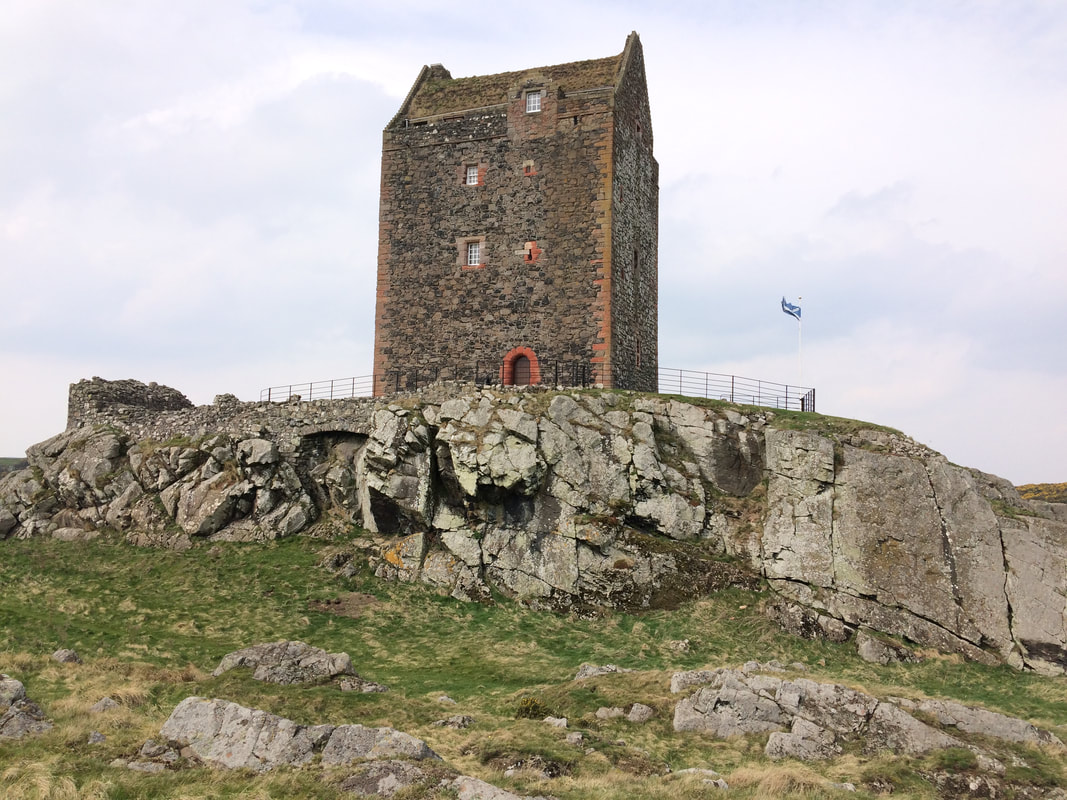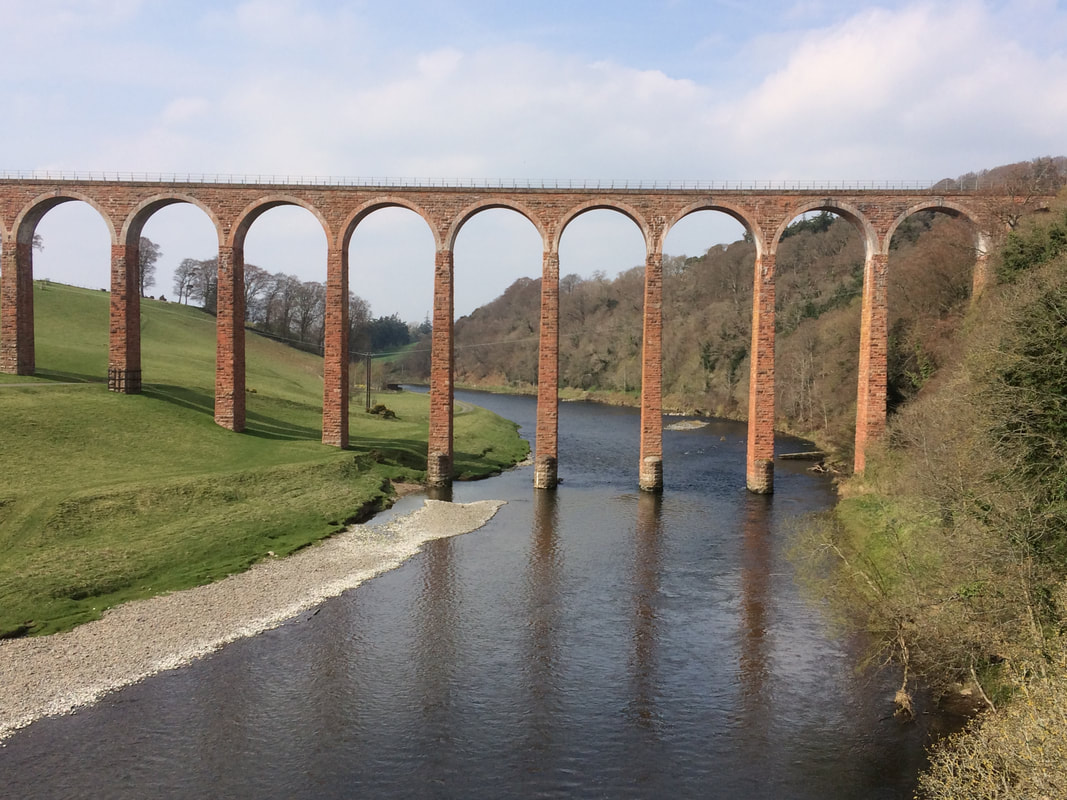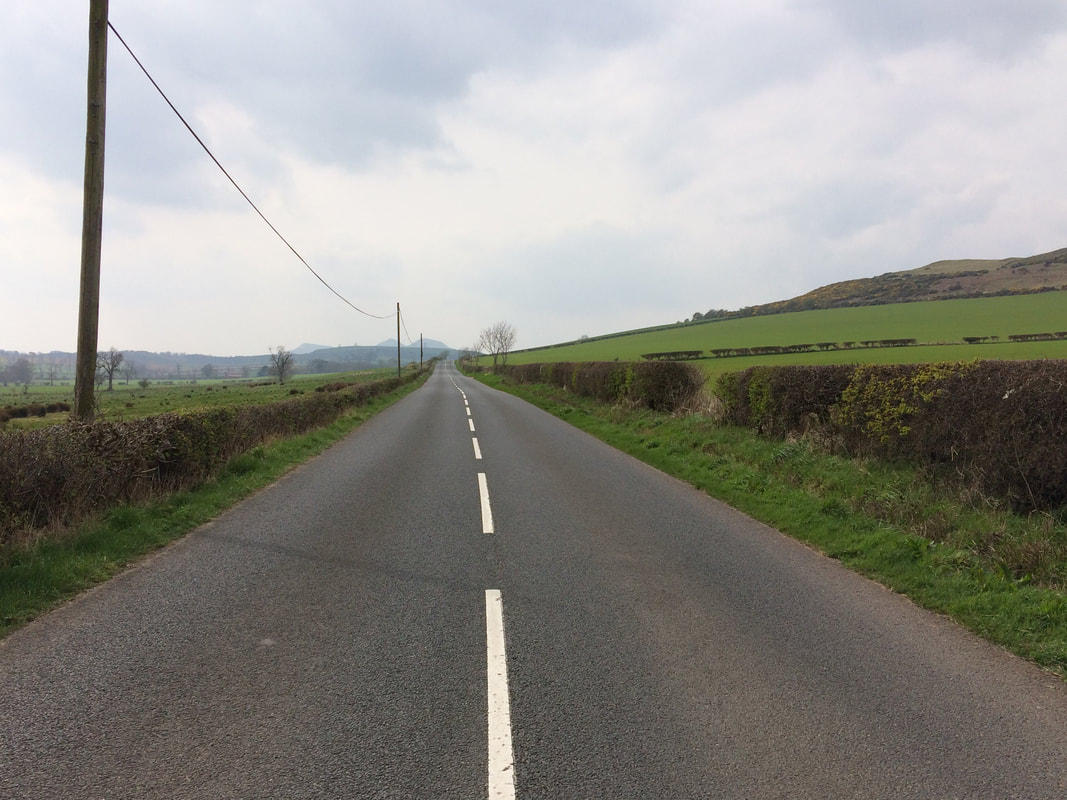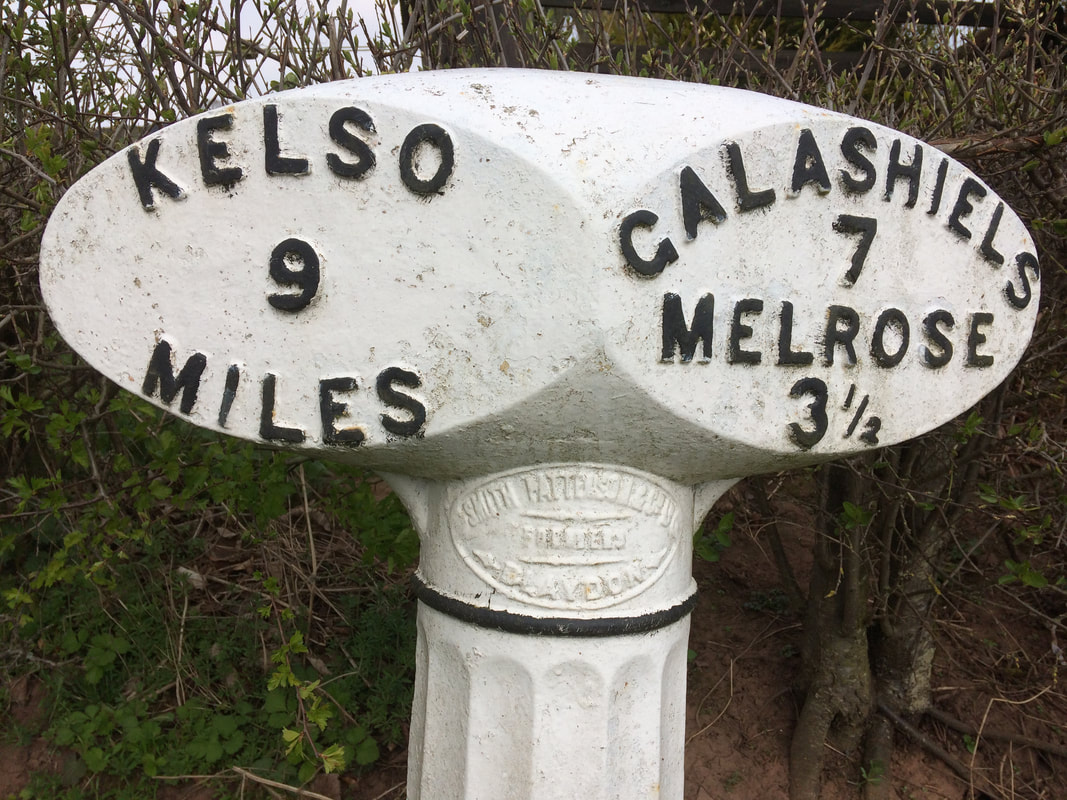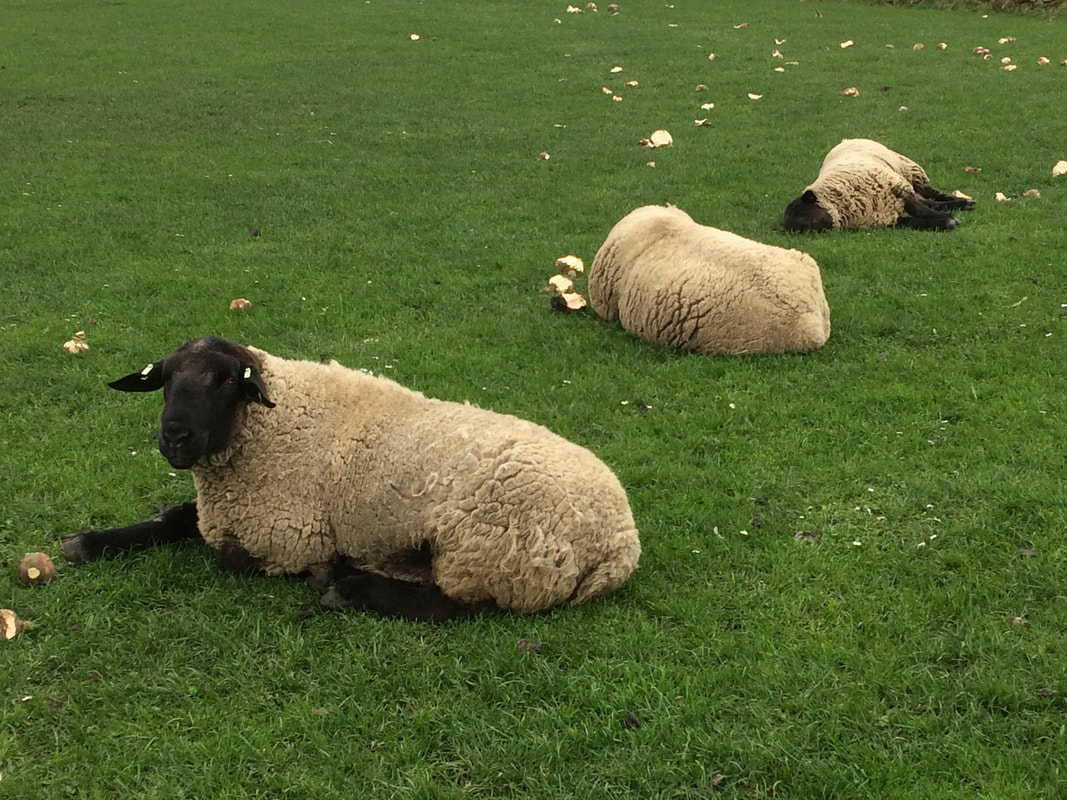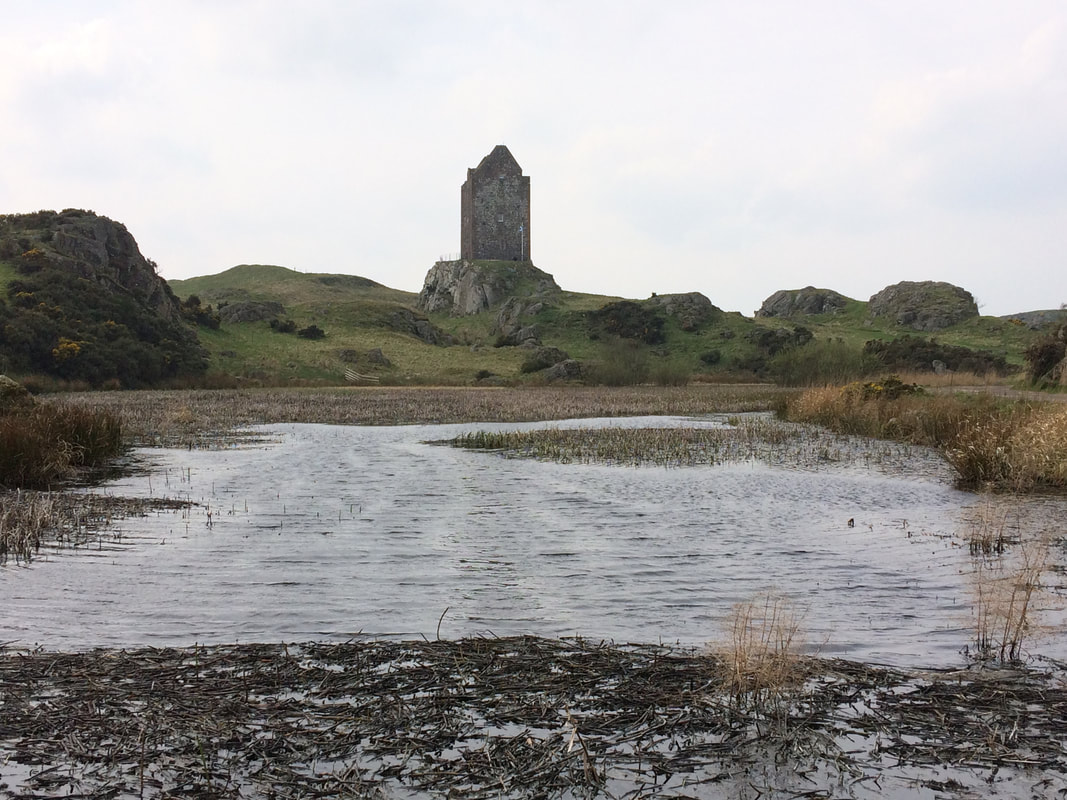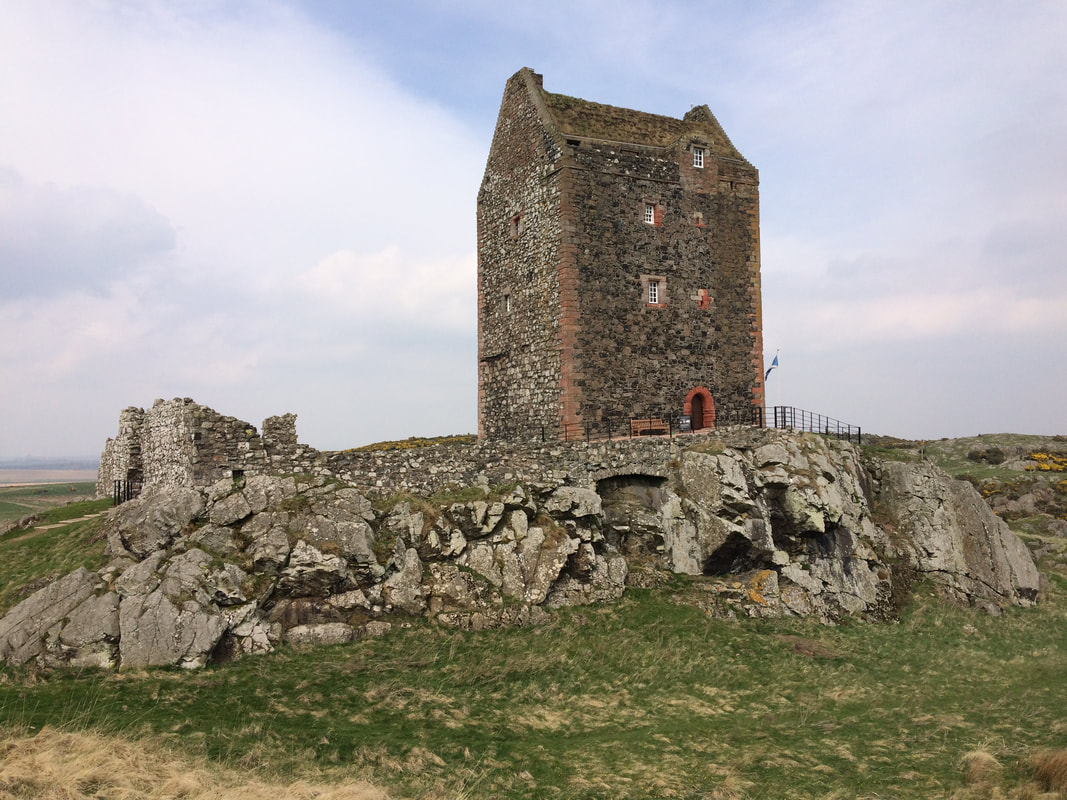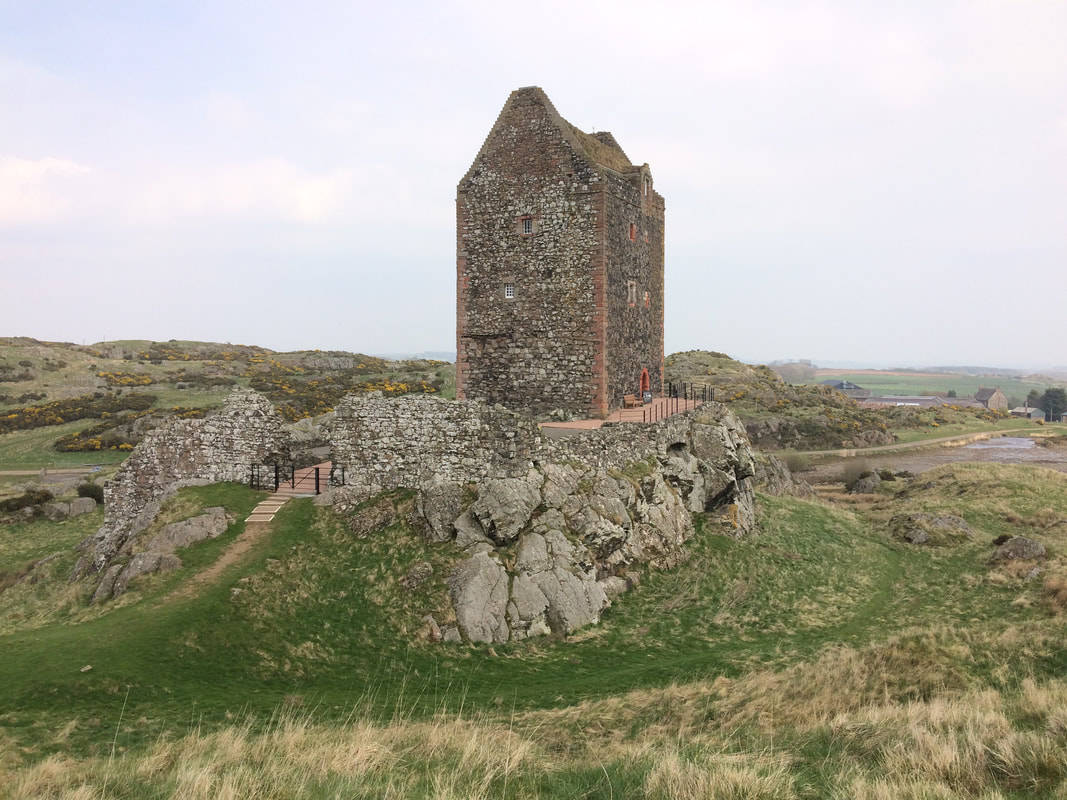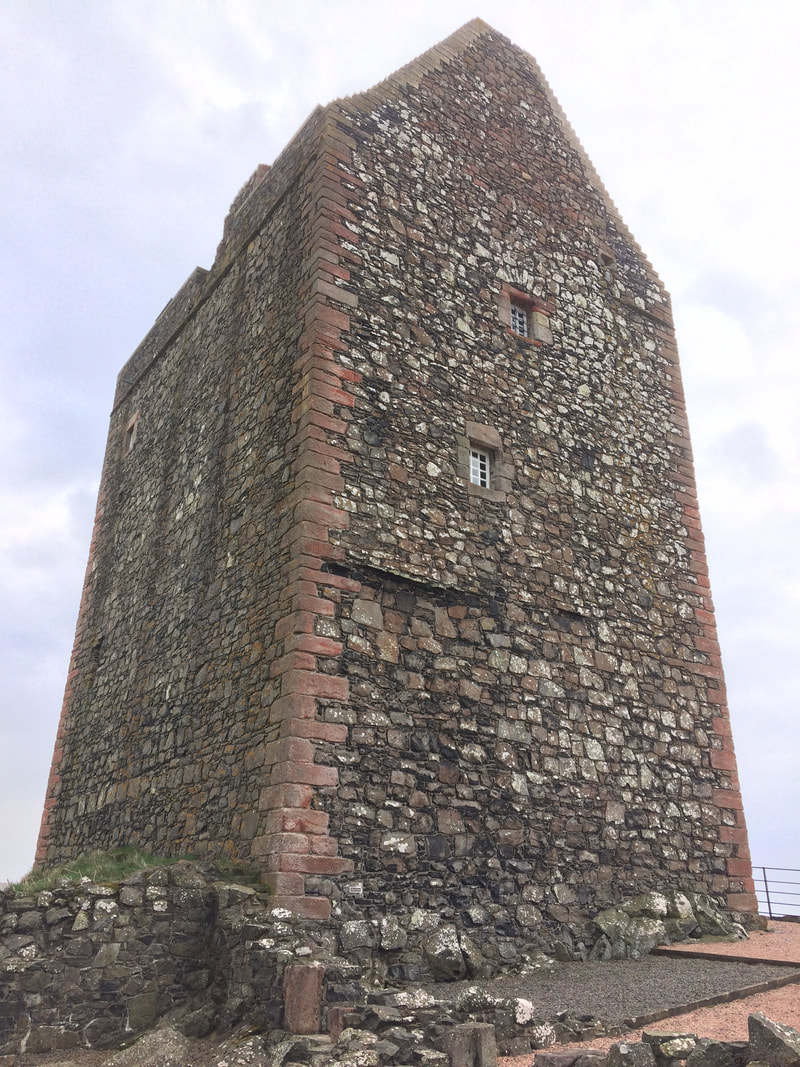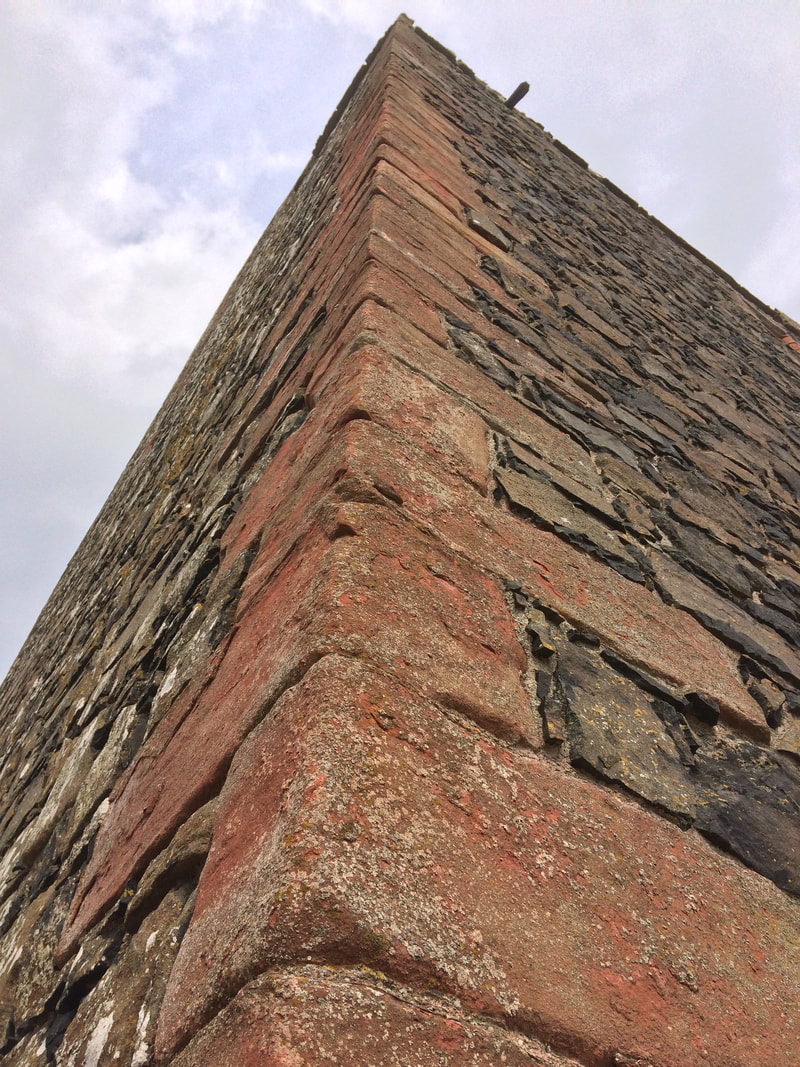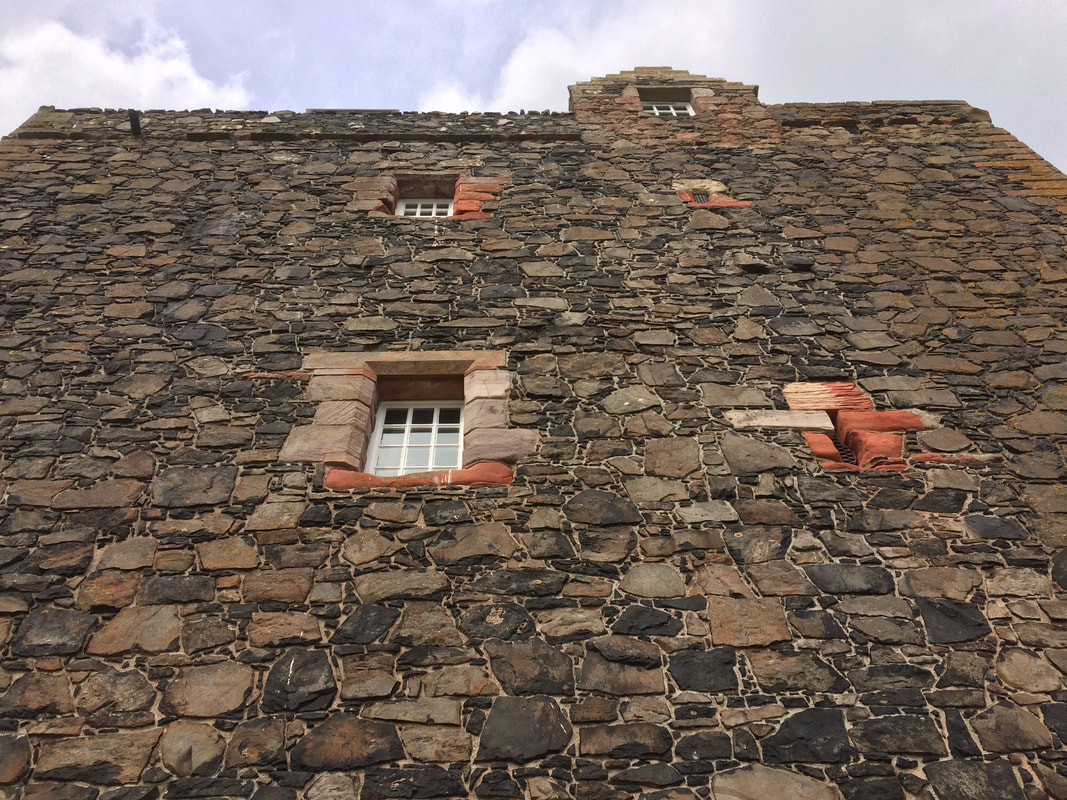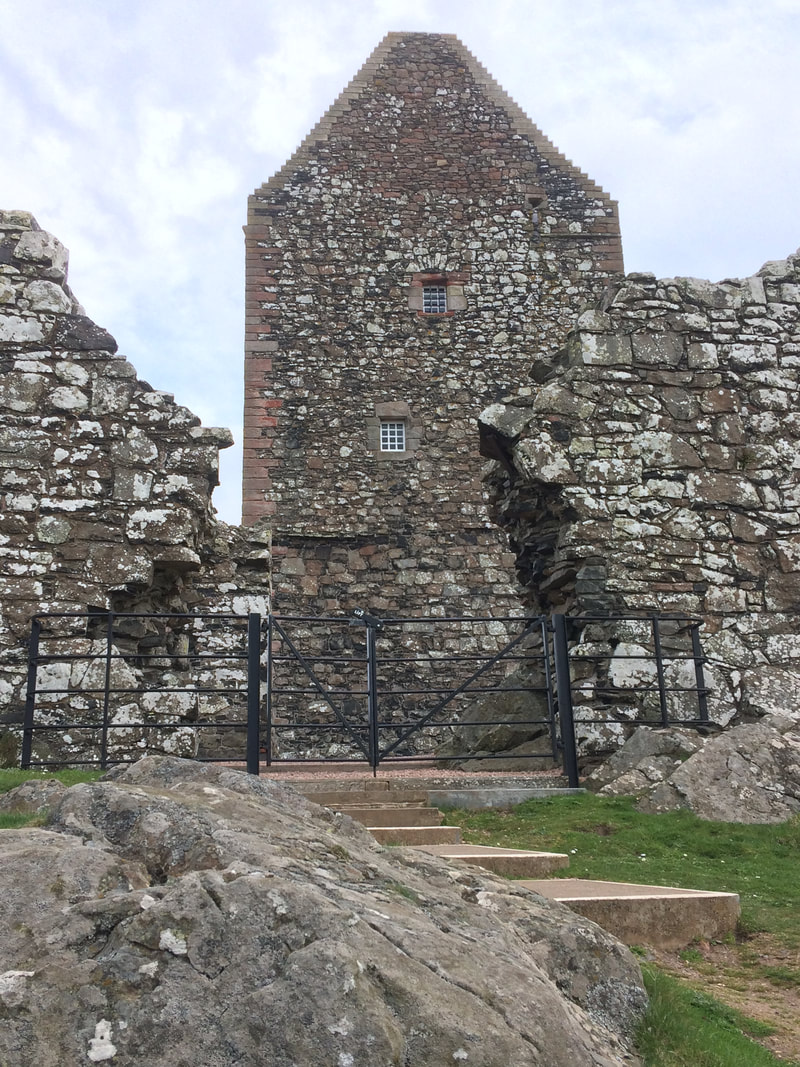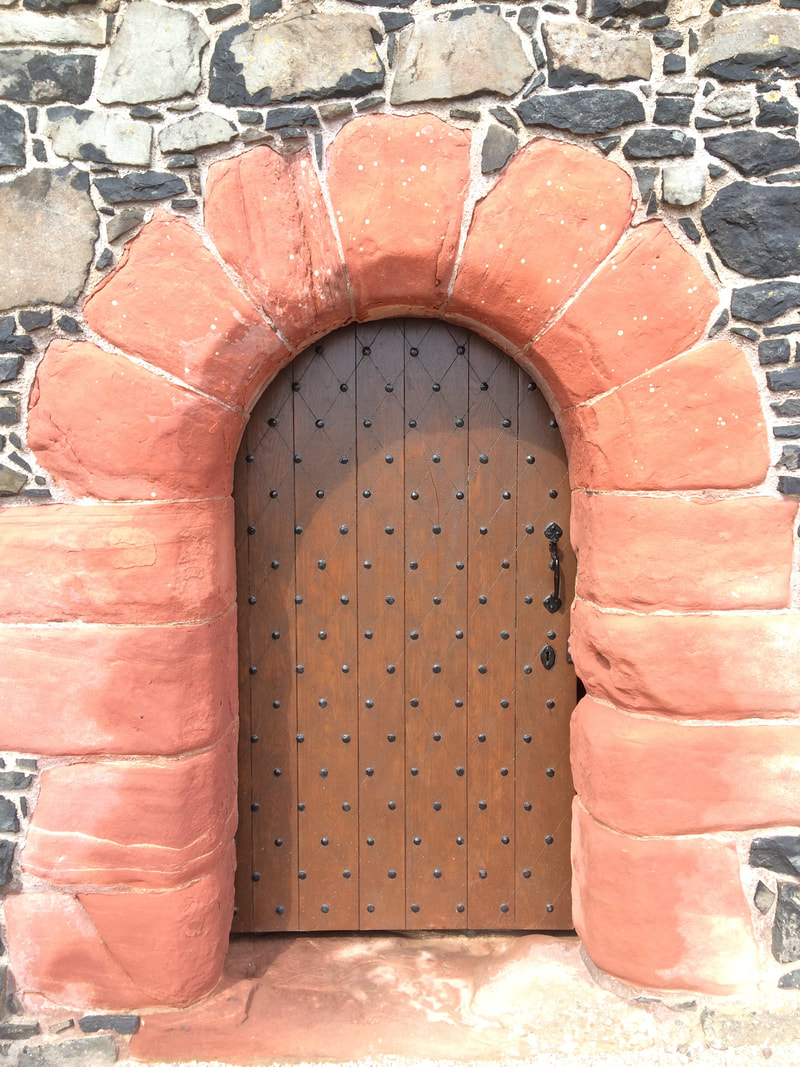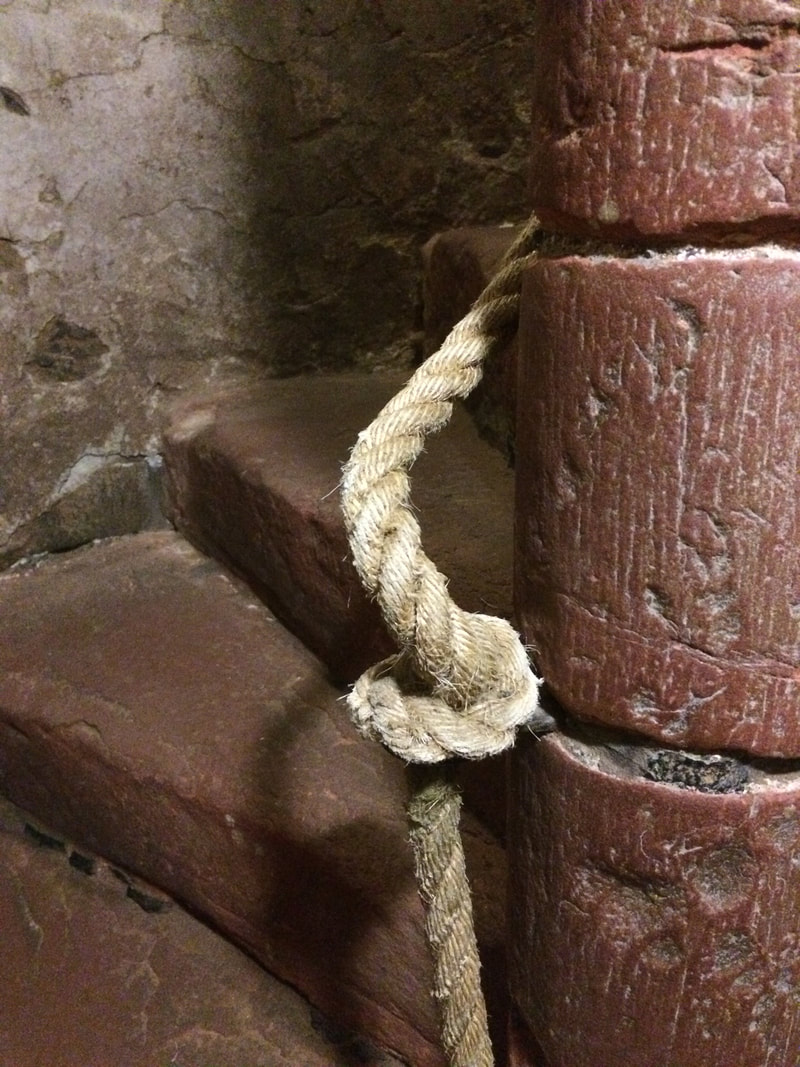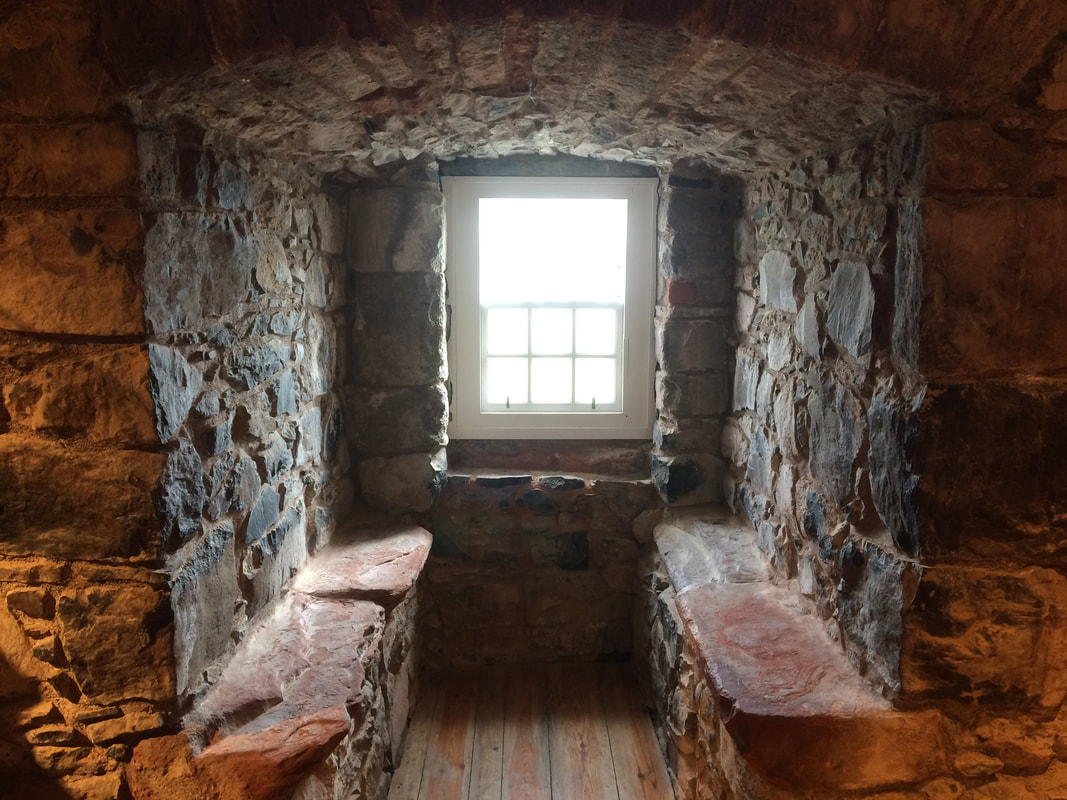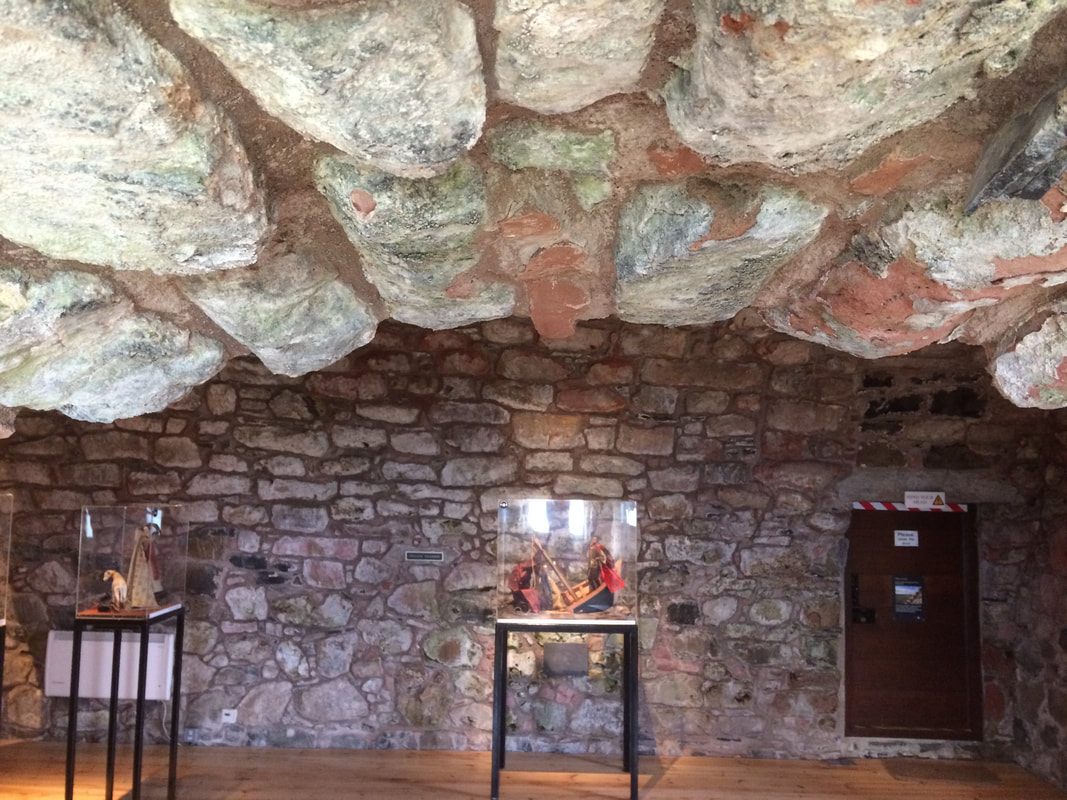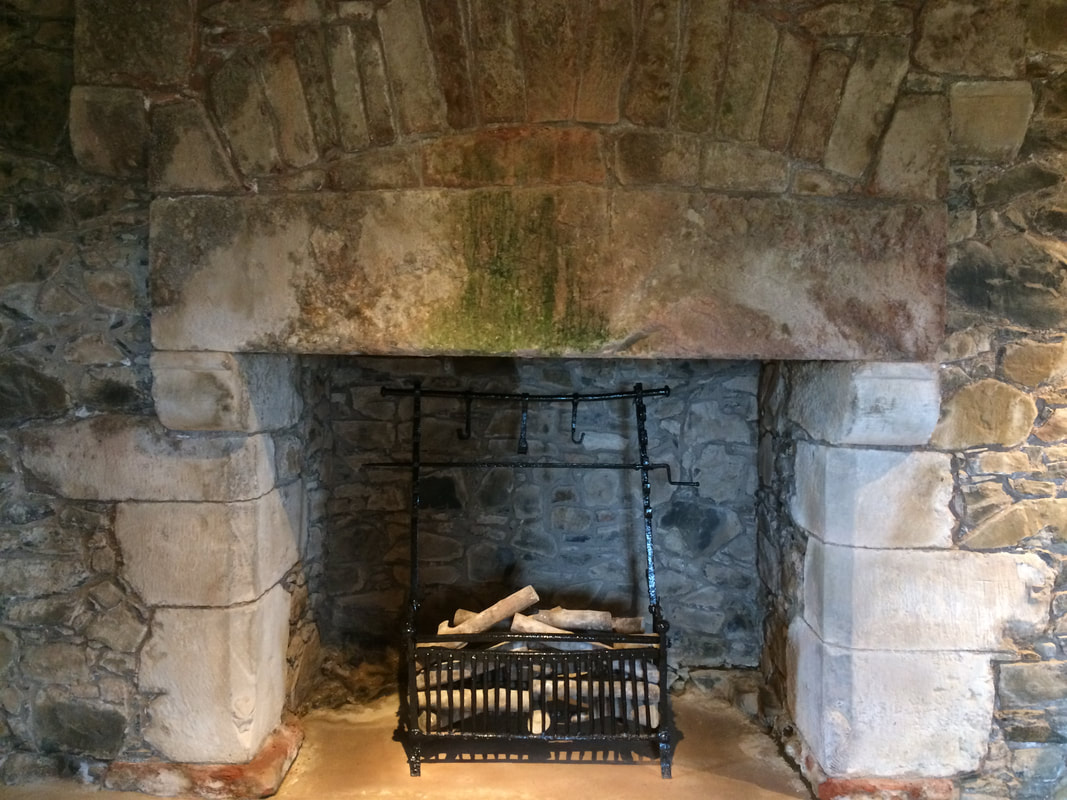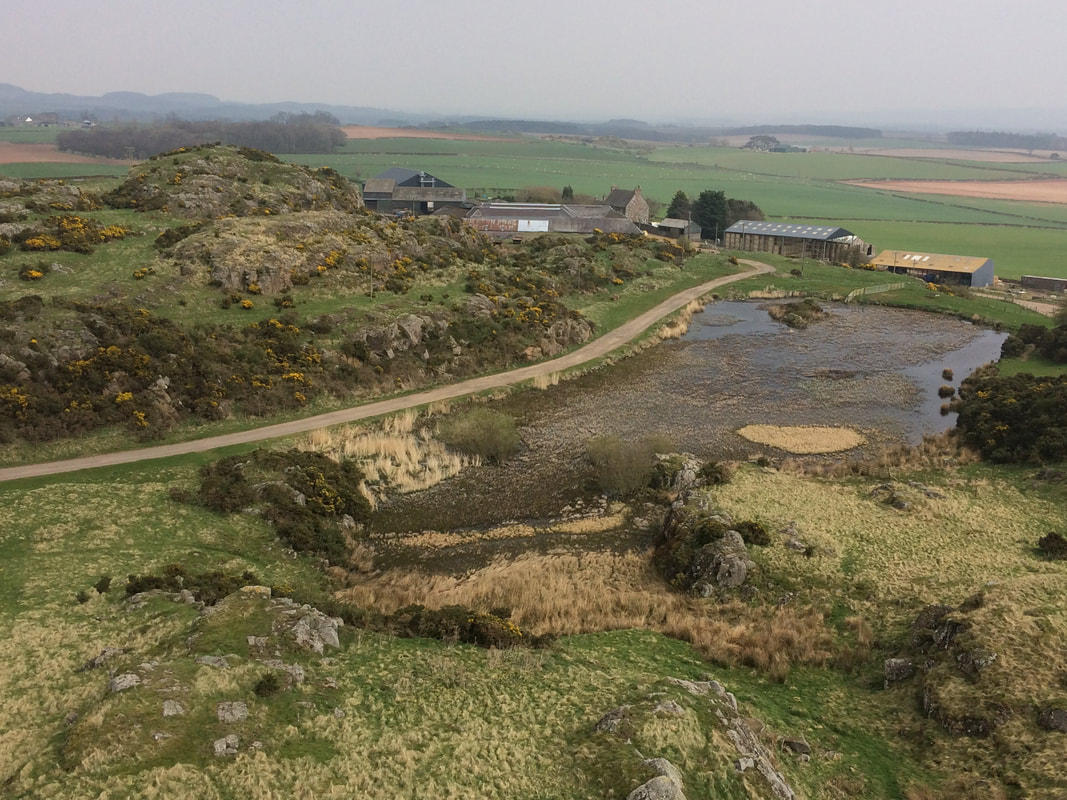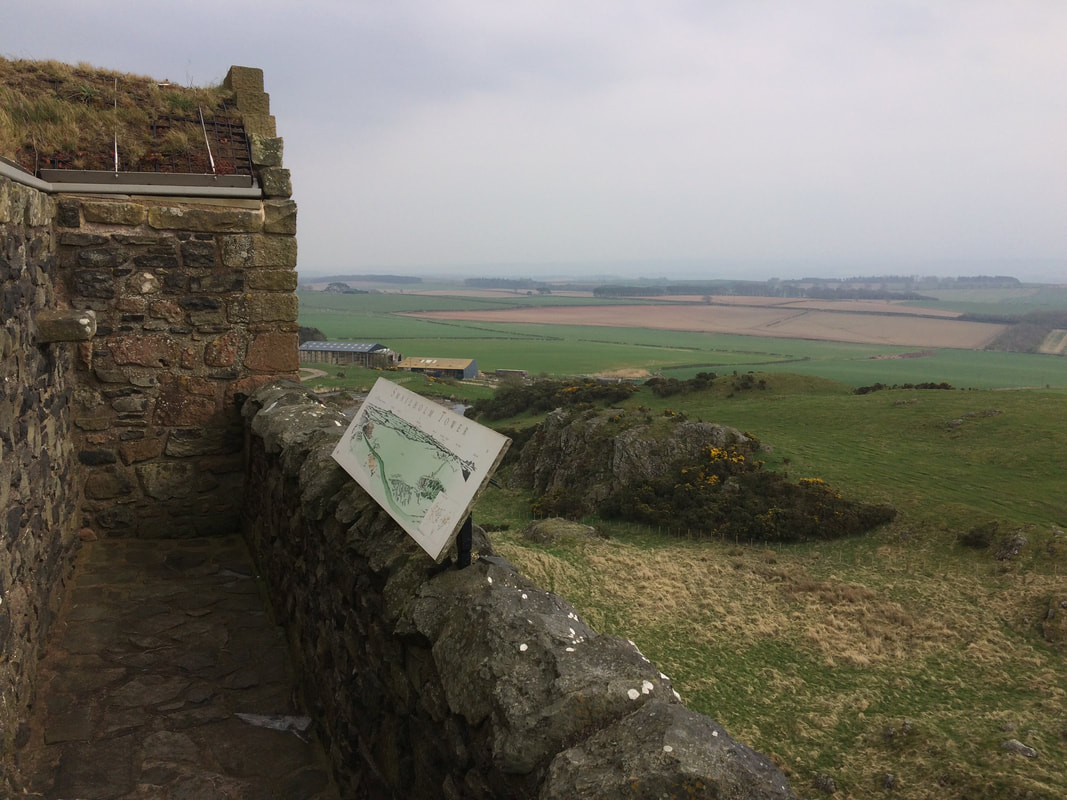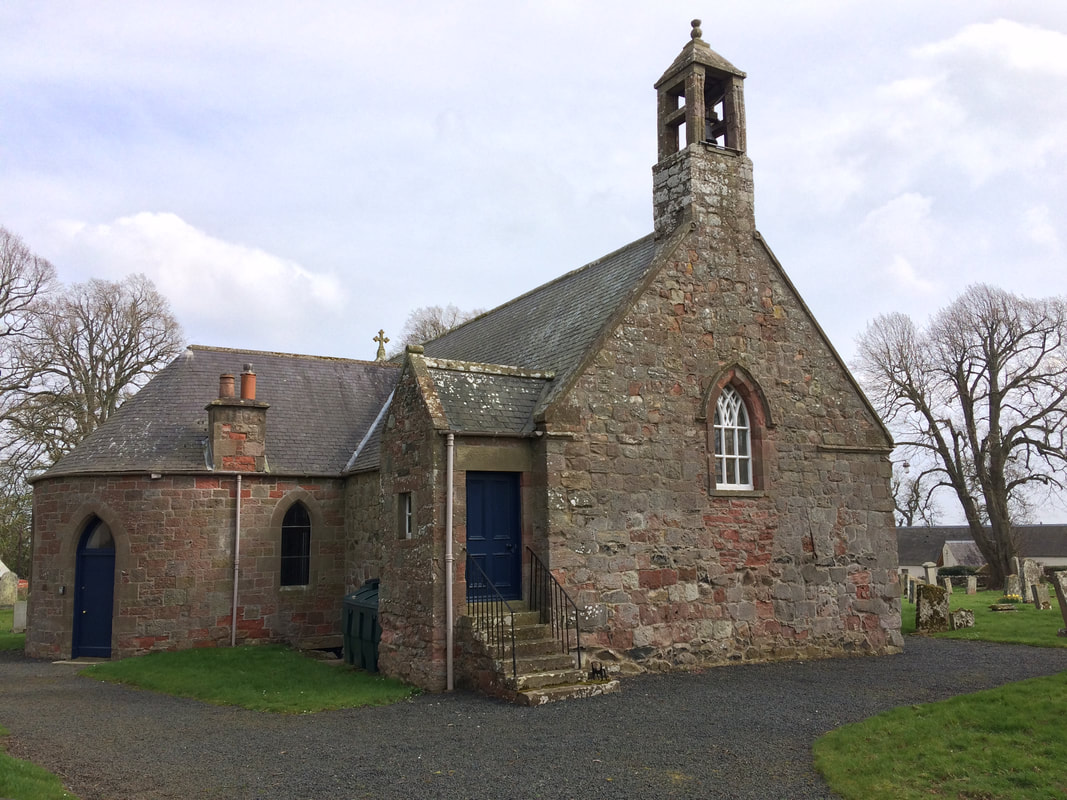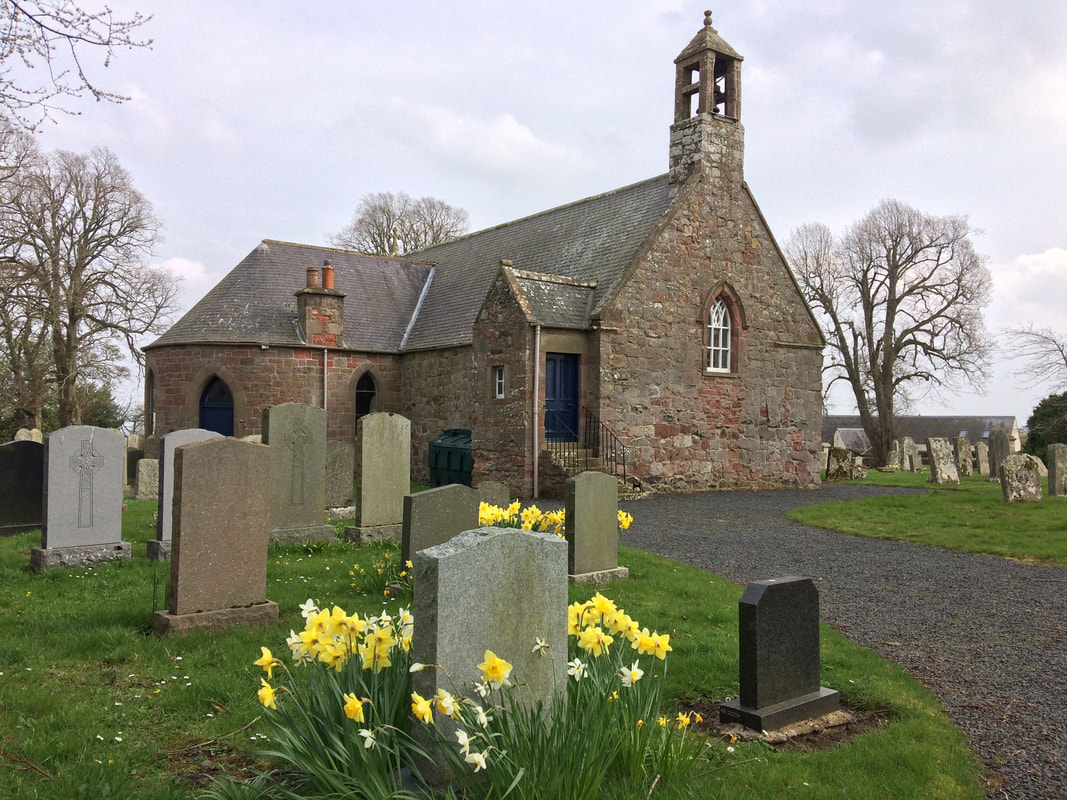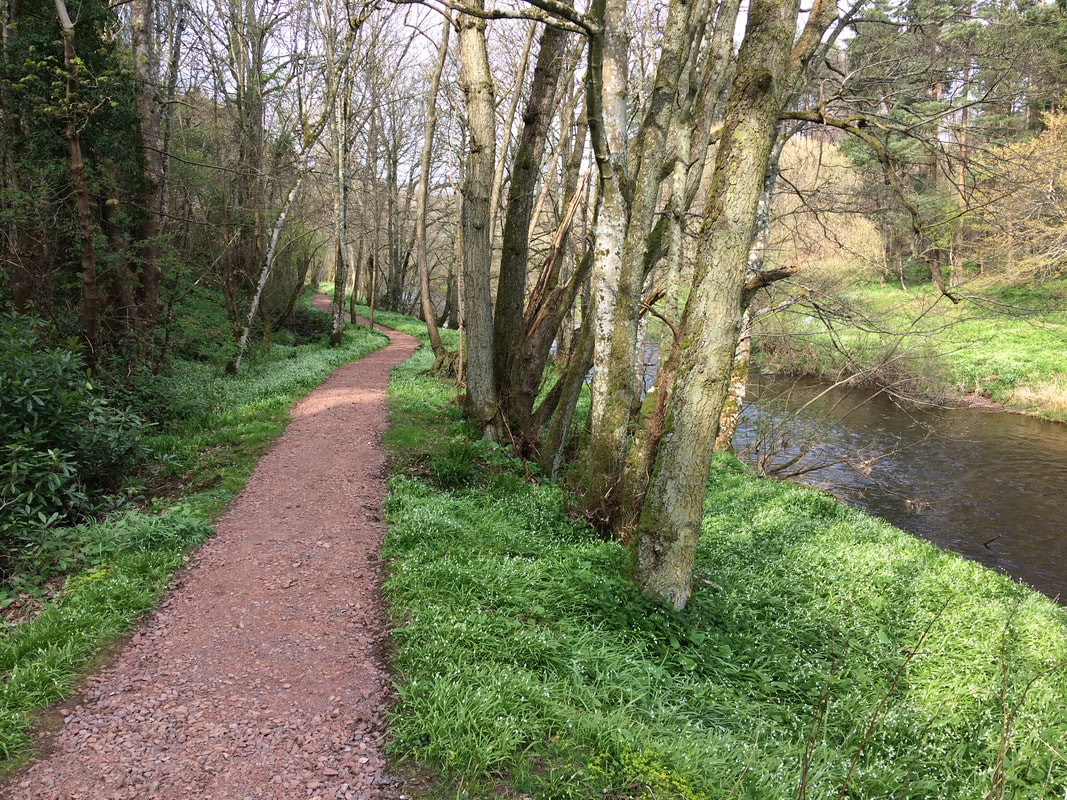|
Smailholm is a classic example of a defensive tower house that was once common in the Scottish Borders. For 500 years the border between England and Scotland was a treacherous place with wars and raids a constant threat to residents. It was essential to build a home that could withstand attacks and Smaiholm provides an opportunity to visit one of these dwellings. The tower is a 10 mile cycle from Tweedbank station on the Borders Railway.
How to get there
Step One: Take the Borders Railway from Edinburgh Waverley to Tweedbank (55 minutes). Bicycles are carried free.
Step Two: Cycle 4 miles from Tweedbank to the Leaderfoot Viaduct, via Melrose. You can read the details of this route in my Leaderfoot Viaduct blog.
Step three: Cycle 5 miles from the Leaderfoot Viaduct on the C78 road.
Beware that the start of this road involves an uphill slog. The C78 has very low traffic volume, less than B-roads. It was almost deserted when I rode it, which made for glorious cycling. It did not matter that the scenery was not particularly outstanding, just fields, because I had a wide road, well-surfaced, all to myself. At one point a vole scurried across the road in front of me, its legs moving at a furious pace.
After 5 miles you will find the sign for Smailholm that directs you onto a single-track road. After one mile you will arrive at the tower. On a field adjacent to this road I found a group of sheep lying exhausted with the remains of turnips scattered around them. They had been feasting and were too exhausted to run away from me when I pulled over to take in this scene of over indulgence.
On the final approach to the tower the road becomes a rough, gravel track.
The landscape becomes increasingly rocky and totally different to the farmland that you have left behind. It comes as a surprise that such a craggy land exists in south Scotland. It feels like somewhere in the Highlands.
It seems like the owners of the tower managed to seek out the only large rock in the Scottish Borders so that they could stick it on top of it.
It was for good reason that the tower was built here. The border between England and Scotand was a place of strife and it was essential for homes to be fortified. Smailholm was attacked by English raiders many times in the 1540s.
It was only in 1548 that the attacks stopped because John Pringle, the Laird, made a promise not to attack England or to interfere with English raids into Scotland. In return his lands were guaranteed to be left alone.
The Pringle family had built the tower around 1450. They were one of the wealthiest families in the Borders, making a living from farming. Smailholm was their farmhouse and it really says something about the world they lived in when a farmhouse has to be a tower with 2.5m thick walls.
The Pringles sold Smailholm to the Scott family in 1645. The most famous member of this family was none other than Sir Walter Scott, Scotland's renowned novelist. He spent time here as a child, recovering from polio, and this place inspired his love of the Scottish Borders.
For me the outside of the tower is more impressive than inside. Its situation on top of the only rocky outcrop in the area, standing guard over the farmland is mesmerising. Just look at the size of the stones that have been used in its construction. Look up the side of the tower to the sky. This is a formidable building.
The only way into the tower is through this small door:
The building has five stories linked by a spiral staircase with a rope banister. I loved how the age of the tower was written into this staircase with the wear on the steps and the scores and indents on the central pillar.
The rooms are mostly empty, apart from an exhibition of figures that feature in Walter Scott's ballads. This means there is no furniture or objects to take up your time. There are interesting architectural features like the vaulted ceilings, window seats and fire places.
For me the highlight of a visit inside the tower is that you can access the rooftop. From here the views are incredible. You can clearly make out the oddness of this landscape- that this rocky ground is truly a one-off because it is largely surrounded by mainly flat farmland.
It does not take long to look inside the tower. It is the outside that is the best aspect of Smailholm. The tower on top of the rocky outcrop looks fantastic and you should take the time to walk around and capture it from every angle.
Other Things to See Don't leave the area without a look at Smailholm Church, in the nearby village. It is very pretty and can be dated back to 1150.
On the return journey the road crosses over the Leader Water, not far from the Leaderfoot Viaduct. There is some lovely walking here with a path heading through the forest and alongside the water.
More on the Scottish Borders...
2 Comments
Cecil Farrar
19/10/2020 01:49:55 am
Thank you so much for spending the time to put this article together about Smailholm Tower. What an excellent example of a Scottish Tower house. Your photographs are stunning and highlight the most interesting parts of the building. I can only imagine the views from the top: what a privilege to have been there.
Reply
Colin
20/10/2020 01:09:29 pm
Hi Cecil, thanks for your kind comments. I am glad you enjoyed the article.
Reply
Leave a Reply. |
Categories
All
Archives
July 2024
|

